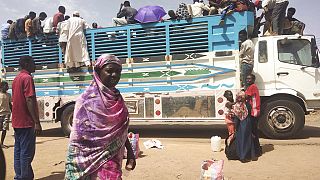The Morning Call
African football is no stranger to death at stadiums. Last weekend was an exciting weekend for football fans in the continent when we were having plenty of matches for the AFCON 2019 qualifiers, but in The Big Island of Madagascar, a life was lost and 40 injured in a stadium stampede just before the Madagascar vs Senegal game.
This is definitely not the first such incident in Africa. It’s again not even the worst. The continent has over the last few decades gotten a tragic record of stadium disasters. Ironically with increasing insecurity, no incident has been a result of a terrorist act. All these tragedies stem from Poor crowd control, overzealous policing and fan misbehavior.
On May 9‚ 2001, the worst stadium disaster in Africa occurred In Accra Ghana, after a match between Hearts of Oak and Asante Kotoko. Hearts netted two late goals to win the game‚ after which Kotoko threw objects onto the pitch and broke seats. The police fired tear gas into the stands and from the resultant stampede‚ 127 souls were lost.
At the Stade Frederic Kibassa Maliba in Lubumbashi DRC, local clubs TP Mazembe and St Eloi Lupopo were clashing on 29, April 2001. Crowd trouble ensued and again, police fired teargas into the crowd. A total of 14 people died in the stampede that followed.
In 2012 reports said 74 people were killed when fans of Egyptian side Al Masry turned violent against visiting supporters of Al Ahly at the Port Said Stadium. Panicked Ahly fans were attacked with blunt instruments and knives, and many were killed in a crush as they tried to escape the violence, while others fell or were thrown from terraces.
Last year, eight fans died in a stampede at a game in Malawi, while the same number was killed in a cup final in Senegal.
Two fans were killed in South Africa during a crush at an entrance gate for a pre-season friendly between Soweto sides Kaizer Chiefs and Orlando Pirates at Soccer City, the venue for the 2010 World Cup final, in July 2017.
Those are just but some of the ugly incidences that have emerged from crowd trouble in African stadiums. By analysis most of the deaths come from stampedes that stem from poor policing, like police firing tear gas into crowd. Then the crowd surges towards the only available exits.
It has been established that due to poor ticketing systems, most of the stadiums have only a few gates open and others locked. Why would you have only 3 gates open in a 60,000-capacity stadium that has over 20 gates?
There’s a culture of neglect that needs to end. Experts attribute the drum roll of football disasters to a combination of poor security and stadium management that reflects a “general indifference to the comfort and safety of people who go to watch.”
The practice of police using tear gas should be banned, as it evidently does nothing but spark calamity and stampedes. Stadium management and crowd control also need to be upped to international standards as per the FIFA guidelines.
But then there’s the biggest problem of all, that is hooliganism and spectator violence which is what has triggered most tragedies. Combating such unruly behaviour has proved hard for security officials but it can be fairly regulated through implementation of fences to stop fans running onto the pitch and installing pens to prevent sideways movement by fans – ultimately, that requires high levels of order and crowd control.
Bottom line is regardless of societal or economic constraints, African governments, federations and football fans have a huge responsibility and in fact a duty, in making our stadiums safe places to watch football.





![Africanews celebrates fifth anniversary [Night Shift]](https://static.euronews.com/articles/stories/05/57/72/74/320x180_cmsv2_6b1e7837-a917-526b-b3b4-4582a3f8bcac-5577274.jpg)
![Africanews celebrates fifth anniversary [Morning Call]](https://static.euronews.com/articles/stories/05/57/72/70/320x180_cmsv2_a6c857d4-80a3-510a-88e6-f060ea8d9ee9-5577270.jpg)






01:46
Algerian football players deal with intense heat as season ends
00:33
Mamelodi Sundowns victorious in Club World Cup debut match
Go to video
2026 World Cup: One year to go
00:48
Zambia's Banda scores fastest hat-trick in NWSL history
Go to video
Confederation of African Football and European Commission sign partnership agreement
Go to video
Cameroon soccer great Emmanuel Kundé dies at age 68